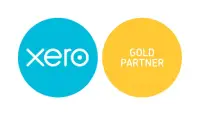When I came to Australia some 16 years ago, it took me a while to get around Superannuation. It did not click with me at the time what a fantastic system it was.
In many ways, it gave people a false sense of security.
Why save and invest when your employer is doing it for you? In many ways, most Australian employees are very, very lucky.
I find there are two thoughts about Super. One is that it is a fantastic tax and investment opportunity for retirement. The other is why bother – money is locked away, and you get it at a time when you may not be able to use it because you have suspect knees that no longer listen to instructions from your brain. Sometimes, it is worse when people die before retirement age. All that money saved and invested is never to be used by you.
But there is no hiding the fact that Superannuation, in most cases, forces us to invest for the future.
So, if you want to maximise the future of Super and you have a retail fund and not a self-managed Superfund, what should you do?
1. Is it being paid?
It is amazing how many times I ask a client the value of their super fund only to see a blank, confused look.
Most do not check if their employer has paid Super. Your employer must contribute to your super, so make sure it is being paid.
Many say they wished compulsory Super was just paid to them rather than invested in a Superfund. But in a majority of cases, they would just spend it, not invest it, so I don’t think that is a great thing to do.
With compulsory reporting, The Australian Tax Office can now identify if employers are not paying Super on behalf of their employees. But still, many do not, and the ATO have limited resources, so they can’t chase everyone. The ATO believes that employers are not paying approximately $ 3.3Bn every year to employee super funds. If you happen to be one of them, then serious damage could be done to your Superfund balance.
My advice is to check your annual statement from your Superfund or call them and ask how much has been paid this year.
2. Have one super account only
How often do you throw $500 in the street for others to pick up and use? I am guessing not often. But you could be doing it more often than you think when it comes to your Superfund.
That happens when you have more than one retail superfund account. Trust me, the finance/ financial planning industry does not need your money, but they will happily take it if you offer it.
Two super accounts mean you are donating unnecessary administration fees and possibly redundant insurance premiums to superannuation administrators.
If you do have more than one Superfund it is easy to check how many funds you have and then to consolidate them.
3. 8th Wonder of the World – compound interest
If you’re young, you may feel retirement and superfunds do not need your attention. But as you get older and reach age 40, you start to appreciate super.
To give you an idea of what it means financially, let me give you an example. If you are 30 years old, you need less investment than if you start at 50 to get the same figure at retirement. You need 3 times the investment at 50 than you need at 30. That is the value of compounding. Compounding is where you earn interest not just on the money initially invested, but on the interest as well; it’s where you earn “interest on your interest”
Investment and retirement is step 9 of our 9 steps to working less, earning more and creating wealth. If you want to know more, contact Hitesh@wowadvisors.com.au or Ros at ros@wowadvisors.com.au or 07 3161 9548.




